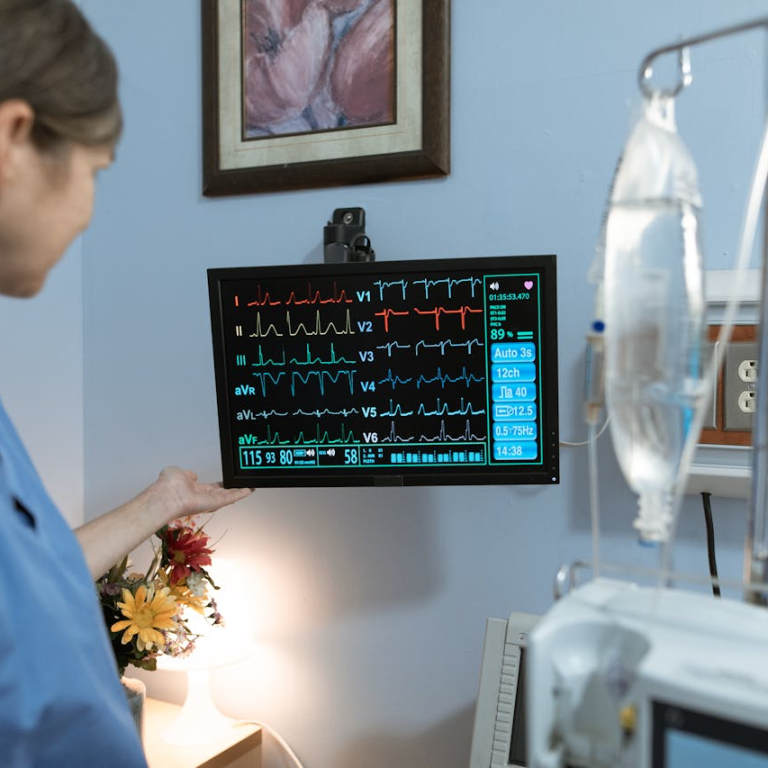Key Takeaways
-
Medicare does cover a wide range of mental health services in 2025, including both inpatient and outpatient care, but the scope and structure of coverage can be complex.
-
Coverage varies depending on the type of service, the setting, and whether the provider accepts Medicare, so it’s essential to understand what’s included and what may involve out-of-pocket costs.
Medicare and Mental Health: Where Things Stand in 2025
If you’re enrolled in Medicare and considering mental health care, you might be pleased to hear that coverage is more comprehensive than it once was. But while Medicare now supports a variety of mental health treatments, including therapy, psychiatric evaluations, and medication management, understanding exactly what’s included can be harder than expected.
Medicare’s mental health benefits span across multiple parts of the program, each with its own rules, costs, and access requirements. In 2025, improvements continue to be made in mental health access, but you’ll still need to pay close attention to eligibility, settings, and limits.
What Medicare Part A Covers for Mental Health
Medicare Part A primarily covers inpatient care. This applies if you’re admitted to a general hospital or a psychiatric hospital for mental health treatment.
Inpatient Psychiatric Hospital Care
-
Coverage includes: semi-private room, meals, nursing, therapy, medications, and other hospital services.
-
Lifetime limitation: Medicare only covers 190 days of inpatient care in a psychiatric hospital over your lifetime. If you’re treated in a general hospital psychiatric unit, the 190-day limit does not apply.
-
Costs in 2025:
-
Inpatient hospital deductible: $1,676 per benefit period.
-
Daily coinsurance for days 61 to 90: $419 per day.
-
Daily coinsurance for lifetime reserve days: $838 per day.
-
You must be formally admitted as an inpatient, and the facility must participate in Medicare.
What Medicare Part B Covers for Mental Health
Medicare Part B handles most outpatient services. This is where most mental health treatment occurs, such as individual therapy, counseling, and psychiatric evaluations.
Services Included Under Part B
-
Psychiatric evaluations and diagnostic tests
-
Individual and group therapy
-
Medication management
-
Partial hospitalization programs (PHPs)
-
Intensive outpatient programs (IOPs)
-
Family counseling (if part of your treatment)
-
Preventive depression screenings
As of 2025, Medicare also covers services from licensed mental health counselors (MHCs) and marriage and family therapists (MFTs), broadening the pool of providers you can see.
What You’ll Pay in 2025
-
Annual Part B deductible: $257
-
After meeting the deductible, you pay 20% of the Medicare-approved amount for most outpatient services.
You must receive care from a provider who accepts Medicare assignment to avoid extra charges.
Prescription Drug Coverage Through Part D
While Part A and B cover services, they don’t cover most medications you take at home. That’s where Medicare Part D comes in.
Mental Health Medications
Many mental health conditions are treated with medications like antidepressants, antipsychotics, or anti-anxiety medications. Medicare Part D plans are required to cover most drugs in these categories.
In 2025, the Part D benefit has undergone significant changes:
-
The deductible for Part D can be up to $590.
-
There is now a $2,000 annual out-of-pocket maximum for covered prescriptions, offering financial relief.
After reaching this limit, your plan must cover 100% of your drug costs for the rest of the year.
Mental Health Support Through Medicare Advantage Plans
Medicare Advantage (Part C) plans are offered by private insurers but must cover everything Original Medicare does. Most plans also include Part D.
While these plans must meet baseline mental health coverage, they may impose:
-
Network restrictions (only in-network therapists covered)
-
Prior authorizations for psychiatric medications or therapy
-
Different copayment or coinsurance structures
Some Advantage plans may offer additional mental health services, such as wellness coaching, virtual therapy platforms, or support groups. However, it’s important to remember that not all extras are guaranteed.
Telehealth Services for Mental Health
Telehealth continues to be a permanent feature in 2025, including for mental health care. Medicare covers:
-
Video visits from home with psychologists, psychiatrists, clinical social workers, and now MFTs and MHCs
-
Audio-only visits when appropriate
Key Rule in Effect in 2025
Beginning October 1, 2025, Medicare enrollees receiving ongoing mental health treatment via telehealth must have at least one in-person visit every 12 months with the same provider, unless an exception applies (e.g., hardship or location).
This requirement applies to services furnished in outpatient settings like clinics, homes, or mobile health units. It does not apply to inpatient or emergency telehealth services.
Preventive Mental Health Services
Preventive care is a critical component of Medicare’s mental health coverage. You’re entitled to certain mental health screenings and wellness visits that can detect problems early.
What’s Covered
-
Annual depression screening (must be in a primary care setting)
-
Annual wellness visit, including a health risk assessment
-
Cognitive impairment assessment (e.g., memory loss)
These services are covered with no cost to you if the provider accepts Medicare.
Intensive Outpatient Programs (IOPs) and Partial Hospitalization (PHP)
If you need more support than regular outpatient therapy but don’t require hospitalization, IOP and PHP options are available under Part B.
-
PHPs provide structured daytime care at a hospital or community center. You return home at night.
-
IOPs offer a similar structure but with fewer hours per week.
These programs include group therapy, medication education, and activities designed to stabilize mental health.
Costs depend on the services received, and the 20% coinsurance applies after the Part B deductible.
What’s Not Covered by Medicare for Mental Health
Despite broad coverage, some services are excluded or limited:
-
Long-term custodial care in a psychiatric or nursing facility
-
Alternative therapies like acupuncture (unless medically approved for specific uses)
-
Services by non-Medicare-certified providers
-
Non-medical counseling for stress, finances, or legal concerns
Always verify with your provider whether they participate in Medicare and whether a referral or prior authorization is required.
Access Challenges: What You Should Watch For
Even though Medicare offers coverage, finding a mental health provider who accepts Medicare can still be difficult in some regions.
-
Many psychiatrists and therapists are in private practice and may not accept new Medicare patients.
-
Waitlists for therapy can be long, especially in rural areas.
-
Telehealth can help bridge access gaps, but not all enrollees are comfortable with digital platforms.
To improve access, consider:
-
Using Medicare’s provider search tool
-
Contacting local community health centers
-
Asking your primary care doctor for referrals
Planning Ahead: Coordinating Benefits Wisely
Medicare coverage rules can interact in ways that either support or delay your care. Here’s how to stay proactive:
-
Check your plan’s provider network if you’re on a Medicare Advantage plan
-
Ensure your medications are on your Part D plan’s formulary
-
Set reminders for the 12-month in-person telehealth requirement
-
Schedule preventive visits annually
-
Ask for care coordination if you’re receiving services from multiple providers
How This Impacts Your Health and Finances in 2025
Mental health needs often require consistent, multi-layered care. Medicare does a better job now than ever before at offering that, but coverage thresholds and limitations still exist. You need to be prepared for coinsurance costs, check eligibility rules, and find providers who work within the system.
In 2025, the out-of-pocket maximum for Part D is a game changer for those who rely heavily on psychiatric medications. But therapy costs, inpatient rules, and telehealth regulations all come with their own caveats.
Making the Most of Your Mental Health Benefits
Taking full advantage of what Medicare offers for mental health means understanding each part of the system and planning ahead. From knowing your deductibles to reviewing your provider’s status, each detail affects your access to care.
If you’re uncertain whether your mental health services are covered or you’re trying to understand your costs, it’s wise to speak with a licensed agent listed on this website who can walk you through the options specific to your plan.











